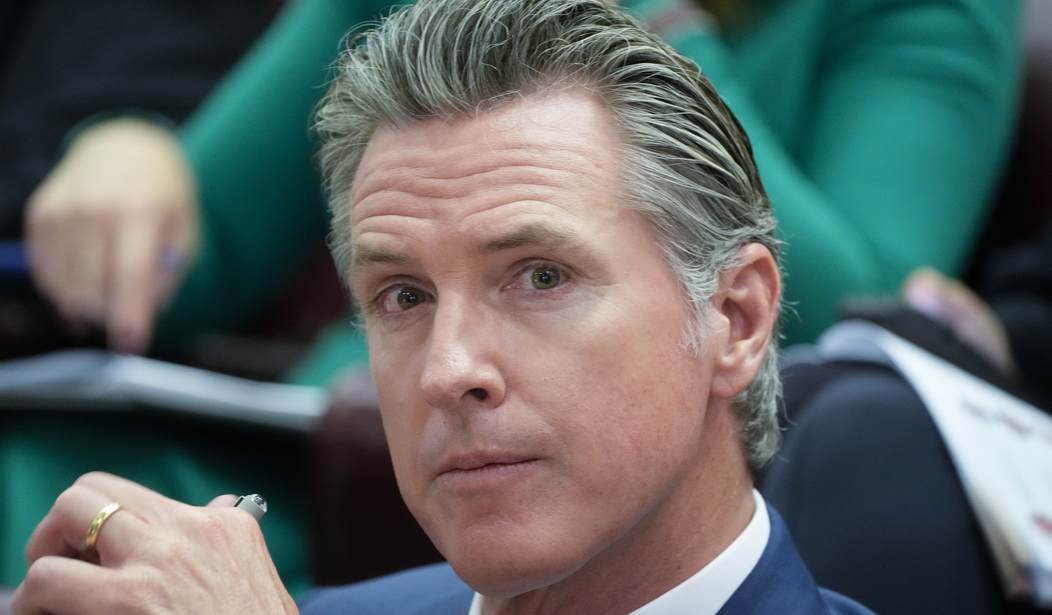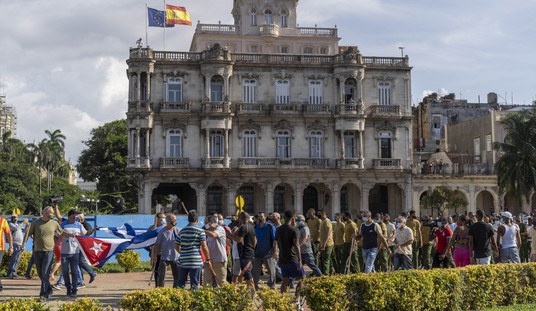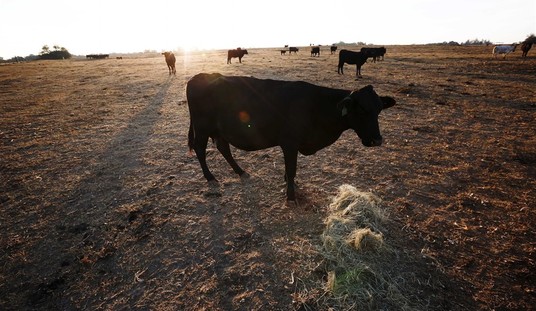If you follow American politics even casually, you have likely already come across any number of images or videos of candidates and other prominent politicians seemingly engaged in provocative or controversial speech or behavior. While some of them may turn out to be legitimate, an increasing number of them wind up being fictional creations that are the product of Artificial Intelligence apps. Not to be confused with the "cheap fakes" that the left loved to talk about when very real images of Joe Biden stumbling and bumbling through public appearances emerged, these "deep fakes" are illegitimate and they tend to be unflattering in most cases. But what can be done about that, assuming there is a workable solution? According to California Governor Gavin Newsom, Big Brother will soon be riding to the rescue. He signed a law on Tuesday that will ban the publication of these deep fakes within 120 days of an election and for 60 days afterward. Civil penalties will be imposed on those who violate the new law. But is that legal? And even if so, is it possible to monitor such activity and enforce the law? (Associated Press)
California Gov. Gavin Newsom signed three bills Tuesday to crack down on the use of artificial intelligence to create false images or videos in political ads ahead of the 2024 election.
A new law, set to take effect immediately, makes it illegal to create and publish deepfakes related to elections 120 days before Election Day and 60 days thereafter. It also allows courts to stop distribution of the materials and impose civil penalties.
“Safeguarding the integrity of elections is essential to democracy, and it’s critical that we ensure AI is not deployed to undermine the public’s trust through disinformation -– especially in today’s fraught political climate,” Newsom said in a statement.
Twitter honcho Elon Musk is someone who has been found to have reposted a number of these deep fakes, typically doing so in a humorous fashion. He hasn't fully finished relocating his entire empire to Texas yet, so he winds up posting from California sometimes, potentially putting him in the bullseye for this new law. He took to Twitter to note that such fake videos should fall under the category of parody and thus be protected speech.
You’re not gonna believe this, but @GavinNewsom just announced that he signed a LAW to make parody illegal, based on this video 🤣🤣 https://t.co/bdykNuxe6G
— Elon Musk (@elonmusk) September 18, 2024
Anyone who has been following the evolution of AI no doubt saw this situation coming well in advance. There are now free tools available that require virtually no coding experience to use and they can generate images and videos that are sometimes quite difficult to discern from the real thing at first glance. Some are humorous, some seem to border on slander. But most of them very likely would fit neatly into the general category of parodies. They just happen to be alarmingly realistic parodies.
Does that mean that the government should be able to force users to take down such creations and impose civil penalties on those who refuse to do so? People have been spreading rumors or simply outright lies about public figures for as long as politics has existed. In the bad old days after America's founding, people who felt that they had been unfairly slandered might take the matter out into the woods and settle it with dueling pistols. In the modern era, we have apparently delegated that sort of work to attorneys.
Newsom's law takes effect immediately, but we're unlikely to receive any sort of official guidance from the courts in the next six weeks or so. With that in mind, it's worth asking what the practical result of passing such a law will be. At any given moment you can browse the internet and find deep fakes involving politicians by the tens of thousands. Who will be monitoring all of those accounts and determining which users in California have been "trafficking" in them? Presumably, a prosecutor will then have to issue a demand for the content to be taken down, with threats of charges being filed to follow. But what if the user simply refuses, claiming that their right to free speech is being infringed? The ensuing lawsuits could stack up so quickly that they would threaten to overwhelm the system.
Perhaps it's just me, but it seems like Governor Newsom has outdone himself once again in terms of overreach. We have plenty of significant concerns on our collective plate already. This simply seems like a needless distraction that will likely run afoul of free speech protections if the state government pushes the issue too far. We need better-educated voters who can more easily recognize deep fakes when they see them. What we don't need are even more laws designed to micromanage our every click on the internet.








Join the conversation as a VIP Member